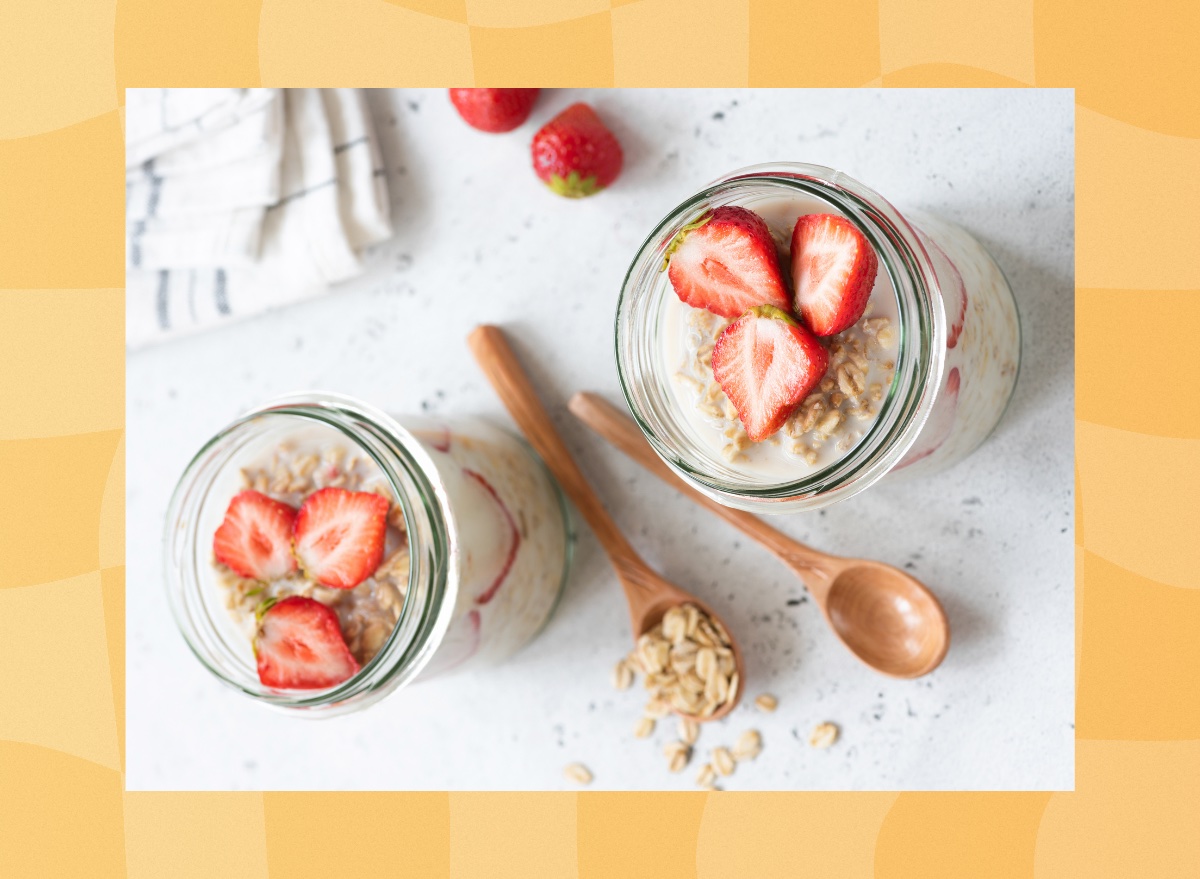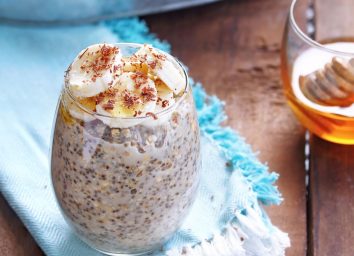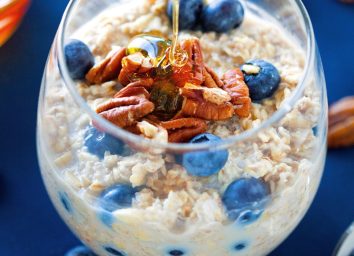Are Oats Gluten-Free? Two Experts Weigh In

Oatmeal is one of our favorite breakfast foods because it contains plant-based protein and belly-filling fiber as well as resistant starch, which helps stabilize your blood sugar and promote satiety. However, many folks avoid oats because of the common misconception that they contain gluten, a protein found in wheat, barley, and rye. So, is oatmeal gluten-free? To help us crack the case on whether oats are, in fact, a gluten-free grain, we spoke to two top dietitians: Leah Kaufman, MS, RD, CDE, CDN, and Patricia Bannan, MS, RDN, LA-based nutritionist and healthy cooking expert. If you suffer from celiac disease or you're adhering to a gluten-free diet for other reasons, find out if you can incorporate oats into your a.m. routine below.
Are oats gluten-free?
First, let's get one thing out of the way: While oats and wheat are both grains, they come from two different plants. "Oats and wheat are both crops that are widely known to make various types of flours, cookies, and starches, but they are not one and the same," Kaufman says. One common misconception is that oats are wheat-based; however, oats are a member of the Avens Sativa subfamily, while wheat falls under the Triticum Aestivum or Triticum Turgidum subfamily, Bannan explains. "This deems them botanically different plants, and is why they contain different specific nutrients." The oat crop is grown with no association to wheat and contains a protein called avenin—not gluten—which is tolerated by most people with celiac disease. This deems oats completely gluten-free. However, it is important to understand that many facilities cross-contaminate their grains, which may contribute to trace amounts of gluten in oats.
How can you ensure you're buying gluten-free oats?
When you're shopping for oat-based products—whether it be steel-cut oats, oat milk, or oat bars—it is important to make sure that the product states that it is "certified gluten-free" on the package, Bannan tells us. This ensures that your product isn't exposed to any gluten contamination during the manufacturing process.
"In order for a food product to be labeled 'gluten-free,' it must contain less than 20 parts per million (ppm) of gluten," Bannan explains. "Food companies can go through the process in order to use the 'certified gluten-free' label, which can give consumers with celiac or gluten sensitivities more peace of mind that a food product is safe. Obtaining this certification requires product reviews, inspections, and ongoing compliance to assure that all ingredients and practices are free of gluten-containing products. Looking for this certified gluten-free seal on oats can help consumers easily identify products that are safe to consume."
In addition to keeping an eye out for the certified gluten-free label, you should also be wary of the ingredient list. "Similarly, if a product states it is 'whole grain,' that likely means that the oat product contains other grains, which are not gluten-free," Kaufman says.
If there's so much to look out for in an oat product, why eat it in the first place?
"Eating oats has many benefits—even for people with celiac disease," Kaufman states. "One benefit is that oats are easier to digest than whole-grains. Similarly, oats contain a soluble fiber called beta-glucan. This fiber causes a thick gel in the gut, which increases our feeling of fullness. Beta-glucan also increases the excretion of bile, which breaks down fat molecules. This, in turn, will decrease the amount of cholesterol circulating in the blood."
Ready to shop for gluten-free oats? We love One Degree Organic Foods Sprouted Oats and Glutenfreeda Certified Gluten-Free Oats.








